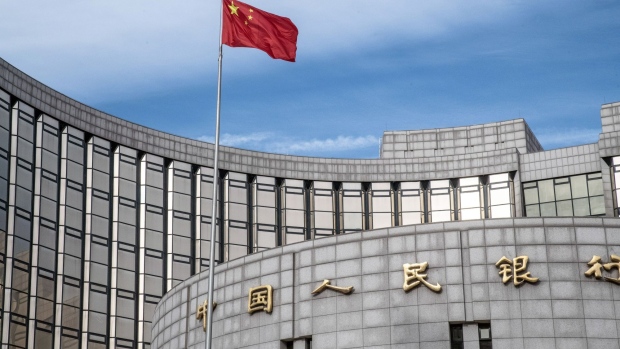Dec 21, 2022
China State Council, PBOC Vow to Boost Growth, Property in 2023
, Bloomberg News

(Bloomberg) -- Chinese authorities ramped up their calls to prioritize growth next year and help the property sector recover from its worst slump on record, in further signs the economy will be top of mind in 2023.
The State Council, central bank and top securities watchdog each met in recent days to study last week’s agenda-setting economic policy meeting, according to Wednesday reports. Readouts of those meetings detailed a commitment to policies intended to rescue the economy and set it on a track to stability.
The government urged for the implementation of previously announced stimulus measures, saying existing policies can be more effective, according to a readout of a State Council meeting published late Wednesday by state broadcaster CCTV. The meeting of China’s cabinet was chaired by Premier Li Keqiang.
“There’s still room for the policy measures to have an impact, and if we do the work well now, it will contribute to the stabilizing of growth in next year,” according to the report, citing the meeting. “The economy is recovering and stabilizing, but the foundation is not yet solid.”
China will push for the construction of major projects, according to the meeting, which also included a pledge to support private firms and the platform economy.
Equities advanced in Hong Kong, with tech and property stocks rising — partly on higher stimulus hopes and after some pricing in of the surge in infections. A Bloomberg Intelligence gauge of property stocks rose 1.6% by the midday break. The Hang Seng Tech Index gained 4.6%.
At a separate meeting chaired by People’s Bank of China Governor Yi Gang, the central bank vowed to strongly support a recovery in consumption and guide financial institutions to support property sector mergers and acquisitions, according to a Wednesday statement.
The central bank said it will provide financial support for infrastructure and major projects, as well as help meet a reasonable need for bond issuance among private firms. The statement also included a pledge to push for the development of the long-term rental housing market, as well as guide platform companies to play a greater role in expanding domestic demand.
The China Securities Regulatory Commission, meanwhile, outlined its own policies intended to help developers in light of last week’s economic policy meeting. The securities watchdog said in a statement that it allows qualified real estate developers to secure back-door listings via other listed developers, as well as the restructuring of property developers and construction companies. That meeting was led by Yi Huiman, the regulator’s chairman.
At the Central Economic Work Conference, top leaders including President Xi Jinping vowed to revive consumption, support private business and support the property sector — the most significant sign yet that China is now focused on growth after years of following its Covid Zero strategy.
Beijing abruptly shifted course in recent weeks, scrapping many of its strictest Covid-related curbs. But gross domestic product is still expected to expand just 3% in 2022, according to the median estimate in a Bloomberg survey of economists.
The economy will also likely experience continued disruption now that many restrictions have been lifted and as Covid infections surge. Hospitals in Shanghai, for example, are struggling to cope with infected patients and businesses are shutting because staff are off sick.
The property market, meanwhile, saw prices fall for a 15th straight month as demand remains weak due to the pandemic, low confidence in the market and dimming job prospects. The head of a top Chinese economic think tank in the country recently singled out “harsh policies” toward the sector in the past couple of years that were intended to reduce leverage as a “total mistake,” adding that officials now seem poised to correct that.
--With assistance from Ishika Mookerjee.
(Updates with additional details from the PBOC statement, stock price movement.)
©2022 Bloomberg L.P.






